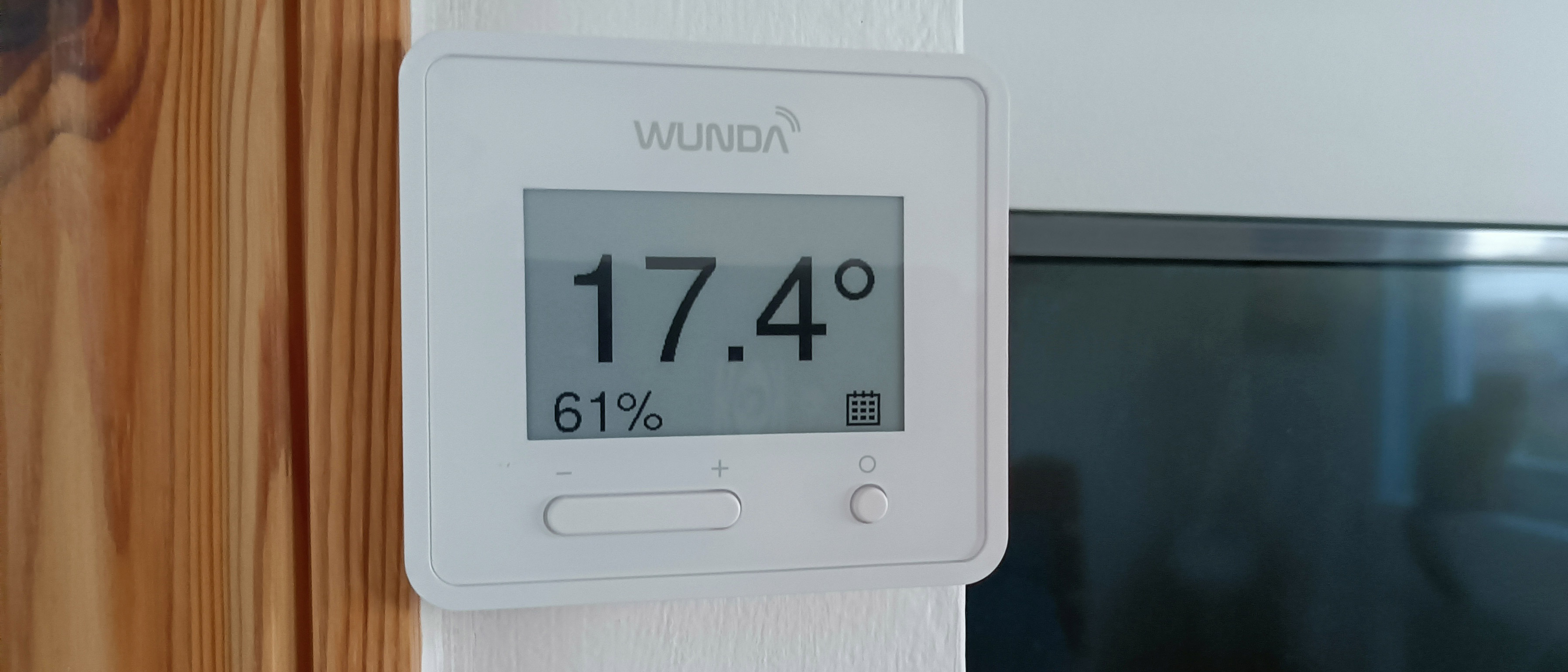TechRadar Verdict
It’s hard to fault this smart heating control system. You get precise control of temperatures in every room via app, voice, and geofencing. While visitors who are less hi-tech can tap buttons on the wall. You save on heating bills but tailored heating schedules mean your home feels cosier.
Pros
- +
Radiator valves allow room-by-room control
- +
Easy to use
- +
Stylish E Ink control panels
Cons
- -
Expensive
- -
Radiator valves are an additional cost
- -
Professional installation required
Why you can trust TechRadar
Two-minute review
Being able to control your heating when you’re not around can prove extremely useful. The best smart thermostats let you use your smartphone to ensure you’re not wasting energy (and money) because you’re heating an empty home when you’re delayed leaving work. In fact, with fossil fuel prices rocketing, there’s never been a better time to reduce your energy bills.
The WundaSmart heating control system is a relative newcomer to the market, which is already stuffed with familiar names in heating, such as Honeywell and Drayton, alongside tech brands including Google. However, it’s certainly holding its own by using two gadgets in each room to precisely control the temperature: a stylish wireless thermostat and a smart radiator head, which replaces any existing TRVs (thermostatic radiator valves) on your radiators, allowing you to control them individually from the smartphone app.
WundaSmart uses a module – or HubSwitch – that connects to your boiler but unlike other smart thermostats on the market, uses its own (low energy seeker signal RF) system to connect with the thermostats and radiators heads. This gives it a longer range with no need for signal repeaters, better battery life and more rooms. It supports up to 30 rooms and 50 radiators, more than any other system. Wi-Fi is used just to connect the main HubSwitch to the internet, so you can command the system from anywhere in the world.
As you’d expect from a smart thermostat, you can set a schedule for when the house should be heated, as well as overriding this to boost individual zones to the temperature you desire. The system will also learn how long your house retains heat for, will switch the boiler on or off earlier than scheduled to ensure rooms in your home are at the temperature you want, when you want them. Open Window Detection also helps put a stop to energy wastage by switching the heating off if a draft has been detected from an open window.
It’s Wunda’s first such product but the company has a 15-year pedigree in underfloor heating and a highly rated customer service team. This is handy as it’s retrofitted to your heating system, so you may need support to fine-tune it to get the best results.
Its other unique feature is keeping your data offline, off the cloud, with bank-level encryption when you access it remotely. That keeps your data private and means your system ticks along fine even if the home broadband goes down: you’d only lose remote features like remote app control and geofencing.
It’s not the cheapest such system but it’s very accurate (0.2 C) and superb, with intuitive app control for schedules and on-the-fly temperature changes, voice control and even geofencing for heating that automatically turns off when you’re away.
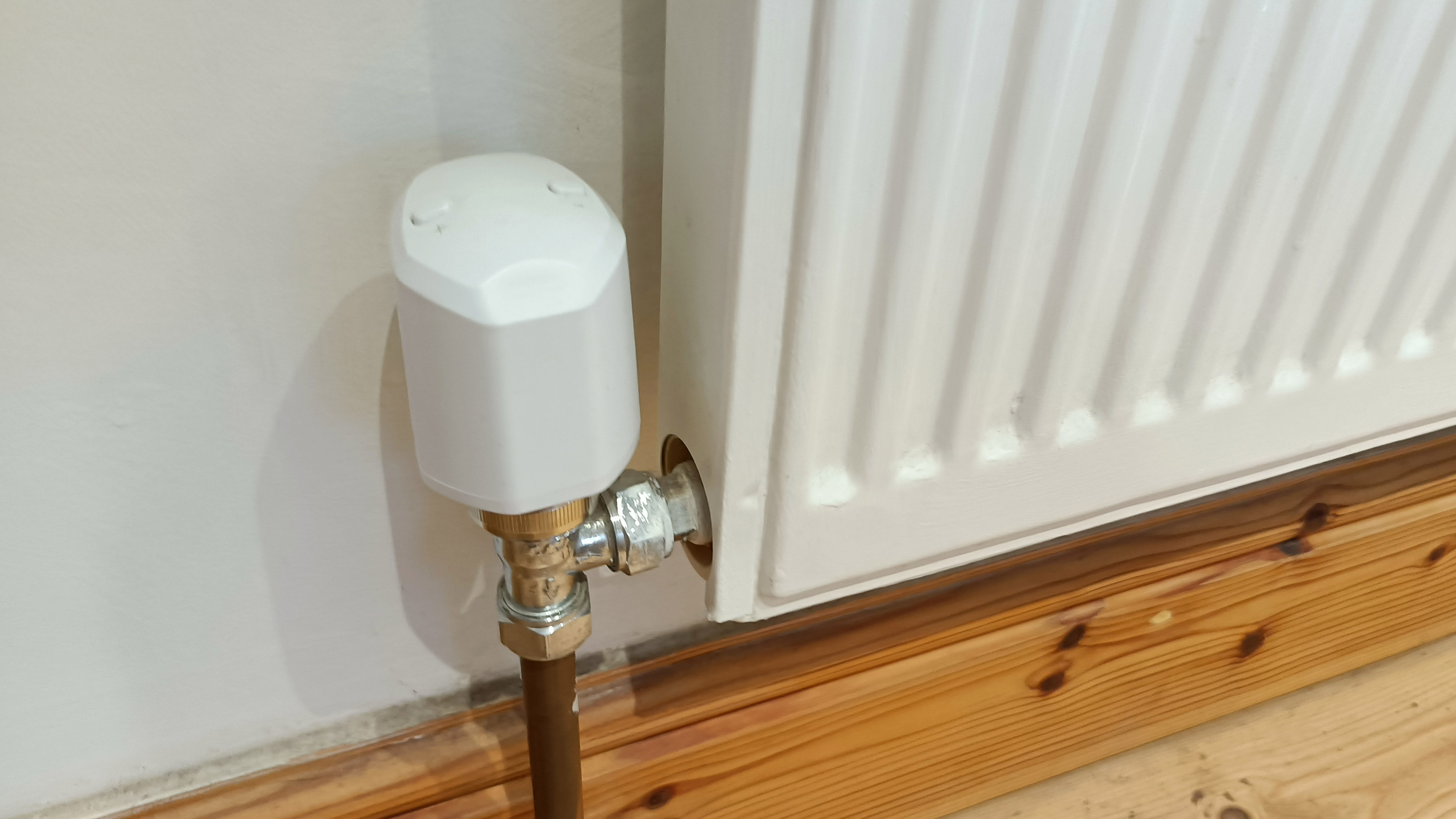
Wunda WundaSmart price and availability
- RRP £439.99 for four rooms
We tested the larger WundaSmart starter kit which includes a WundaSmart HubSwitch, four radiator heads, two room thermostats, and one screenless Thermostat, and is priced at £439.99. It’s available directly from Wunda or from Amazon.
Additional radiator heads will set you back £55.95 each, while room thermostats cost £49.95 and screenless thermostats are £40. If you have underfloor heating, you need a 12-zone UFH wiring centre (one per manifold), priced at £99.95.
Wunda also offers a small starter kit for £199.99 but this only includes a WundaSmart HubSwitch and one room thermostat. It doesn’t control individual radiators or measure the temperature in multiple rooms.
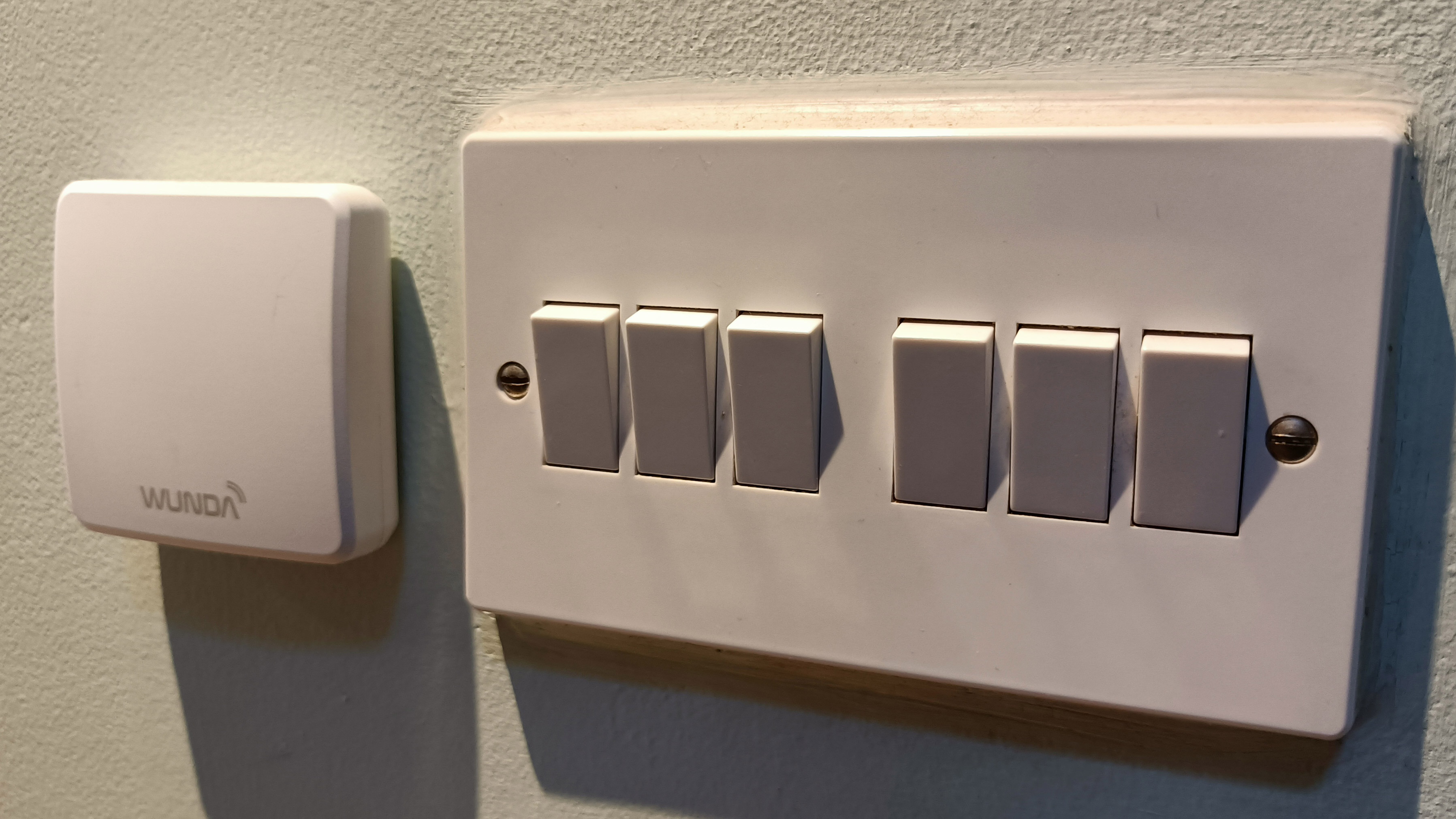
Design
- Simple white smart radiator heads
- Wireless thermostats with E Ink display
- Option of screenless thermostats
To save money, materials and batteries, many smart heating control systems put thermostats in the radiator heads. The problem is, inches from the radiator is a terrible place to measure a room’s temperature. You need a thermostat positioned somewhere more sensible.
So WundaSmart puts two smart gadgets in each room. The WundaSmart Radiator Heads are plain white, with two buttons on the top and an indicator light. They do measure temperature, although there’s no display - their main job is physically controlling radiators.
The use of a separate room thermostat elsewhere in the room is a key difference for Wunda (it’s not unique to Wunda but it’s unusual). Together, both devices measure room temperature more accurately (within 0.2 C, according to Wunda) as well as humidity.
There are two styles available; room thermostats and screenless thermostats. The room thermostat is the size of a single light switch and boasts an E-Ink display with large digits, so you can see the temperature, even from the other side of the room. Humidity is displayed in smaller digits at the bottom. Buttons let you change the temperature without going near an app – great if you have guests.
If you don’t want the display or controls, you can instead fit a screenless thermostat. These are smaller and tamper-proof: good for children’s rooms where you don’t want them to change the temperature or bathrooms where you don’t want buttons. They’re less stylish than the room thermostat but you can hide them away – somewhere that gets an accurate temperature reading but it doesn’t have to be easy to reach as you’ll only need to access it to replace the batteries.
Both types of thermostat can be mounted without fixings: they come with strong, double-sided sticky pads. WundaSmart works with both combi and conventional boilers (including hot water control), heat pumps and underfloor heating.
Wunda doesn’t offer an installation service but it recommends you use a professional installer or heating engineer.
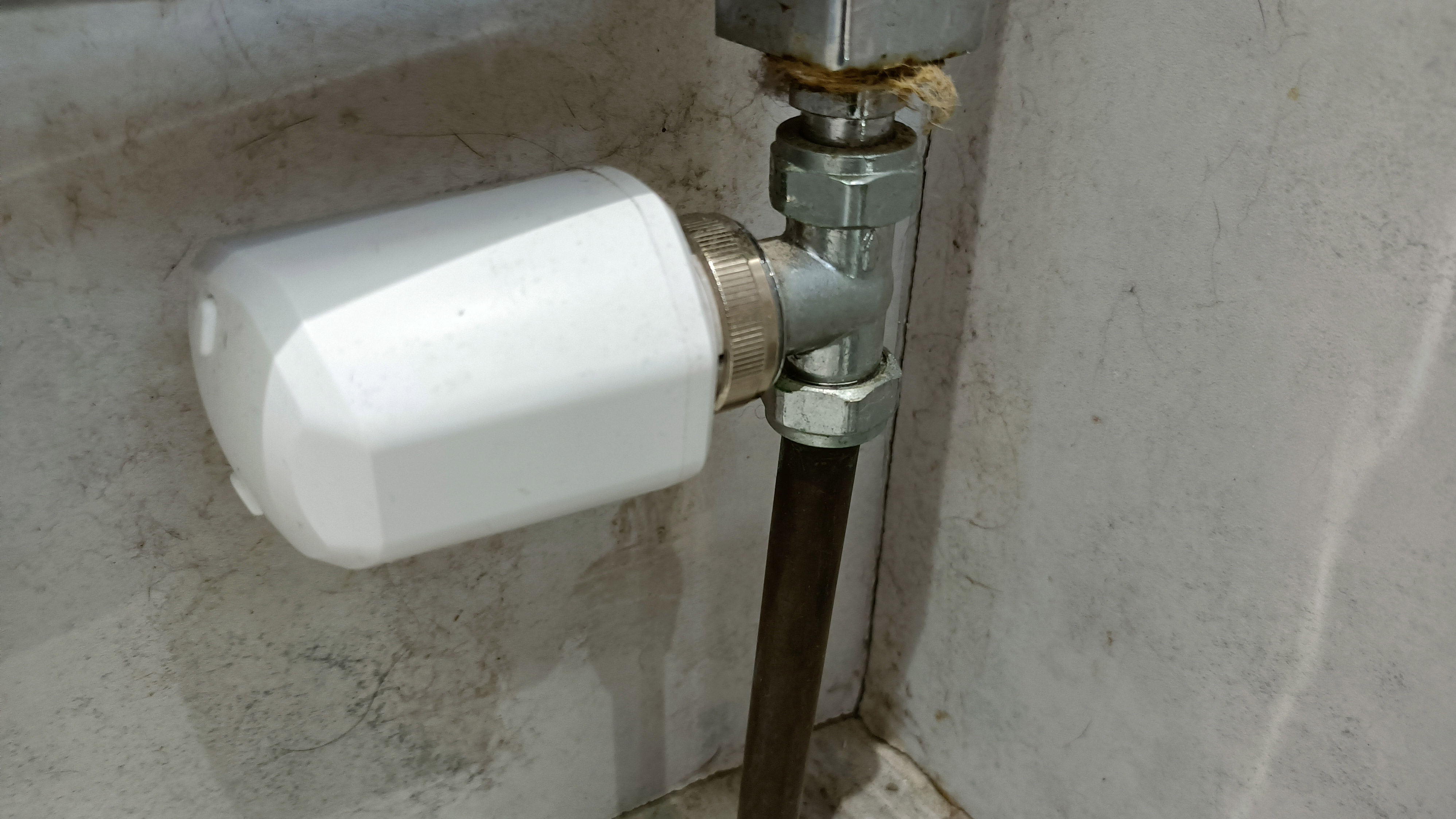
Performance
- Precise temperature measurement
- Self-learning
- Tireless customer support
The app is the best way to manage your WundaSmart system and this is largely done by setting schedules. You can set precise schedules for each room (or zone if you decide to control multiple radiators together). Make a schedule for one room for one day and you can copy it to other days or other rooms, making setup simple.
For each room, the app also gives you buttons to override the schedule and go straight to your three favourite temperatures. You can customise these to your preferences. I set mine to 17 C (standard), 19 C (cosy), and 20 C (for emergency use if my parents are coming… I suspect they’re reptiles).
WundaSmart also has an ‘adaptive start’ mode that learns on the job (other brands have similar). You tell the app what time you want your room to be warm for and it experiments in the coming days to learn what time to start heating up the radiator. Again this means more warmth, less waste. While an ‘open window’ mode senses draughts and pauses the heating accordingly.
We were also impressed with customer support. I could see from the app, a couple of rooms were warming up when they weren’t scheduled, however, customer support patiently helped me to adjust the radiator valves. This involved using a wooden spoon to push down on the pin in the valve to check it’s moving freely, then with my permission after I’d replaced the valve’s head, they were remotely able to adjust the ‘downforce’: how much the valve pushes the pin.
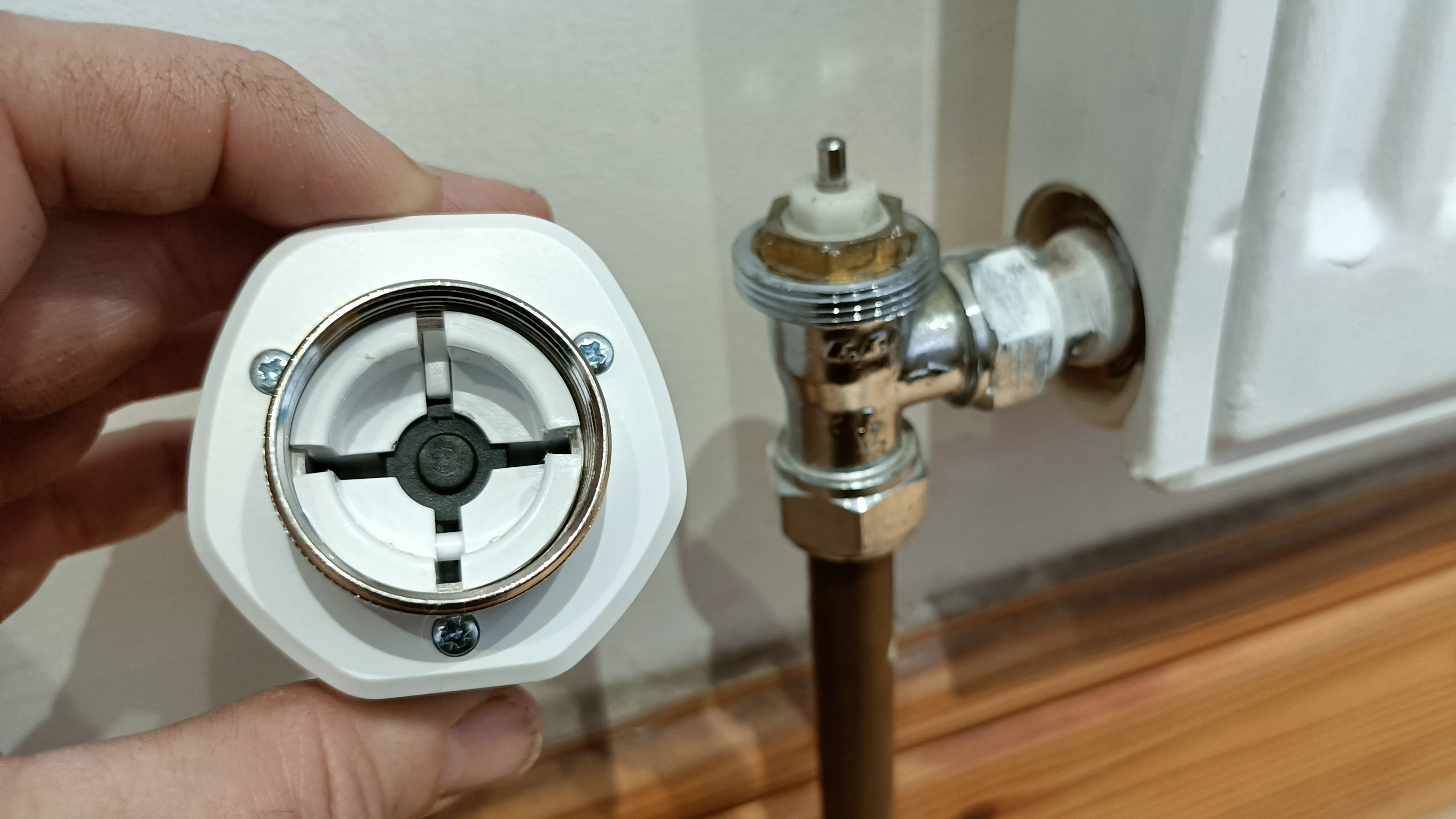
App
- Boost the temperature or amend schedules
- Alexa and Google Home voice control
- Geofencing
The app, which is confusingly called Wunda Smart (with a space in it), lists rooms by name and lets you change temperatures with a tap of the screen, edit the schedules and also see graphs of temperatures over the last week. The graphs have taught me that rooms take about an hour to warm up by a degree, so if I feel cold and want a warmer living room I should think ahead. But the ability to tap an app to do so is glorious.
They’re also a great way to check that the system is behaving perfectly and also that the schedule still meets your needs. I’ve tested other smart heating control systems but never had such detailed oversight.
WundaSmart also works with Amazon Alexa or Google Home for voice control (but not Apple HomeKit). I got it working on my existing Google Home system, and was able to use my voice to find out room temperatures but it was hard to figure out the voice commands to control it.
Working from home and with the children at a nearby school, I didn’t use the geofencing option, but it’s a great idea. It triggers the heating based on smartphone location. For example, it can turn on automatically when you’re nearby (you set the radius) or turn off when you’re away. And it works with multiple phones. If your teens have their own phones, it could ensure their rooms are only warm when they’re around, for example.
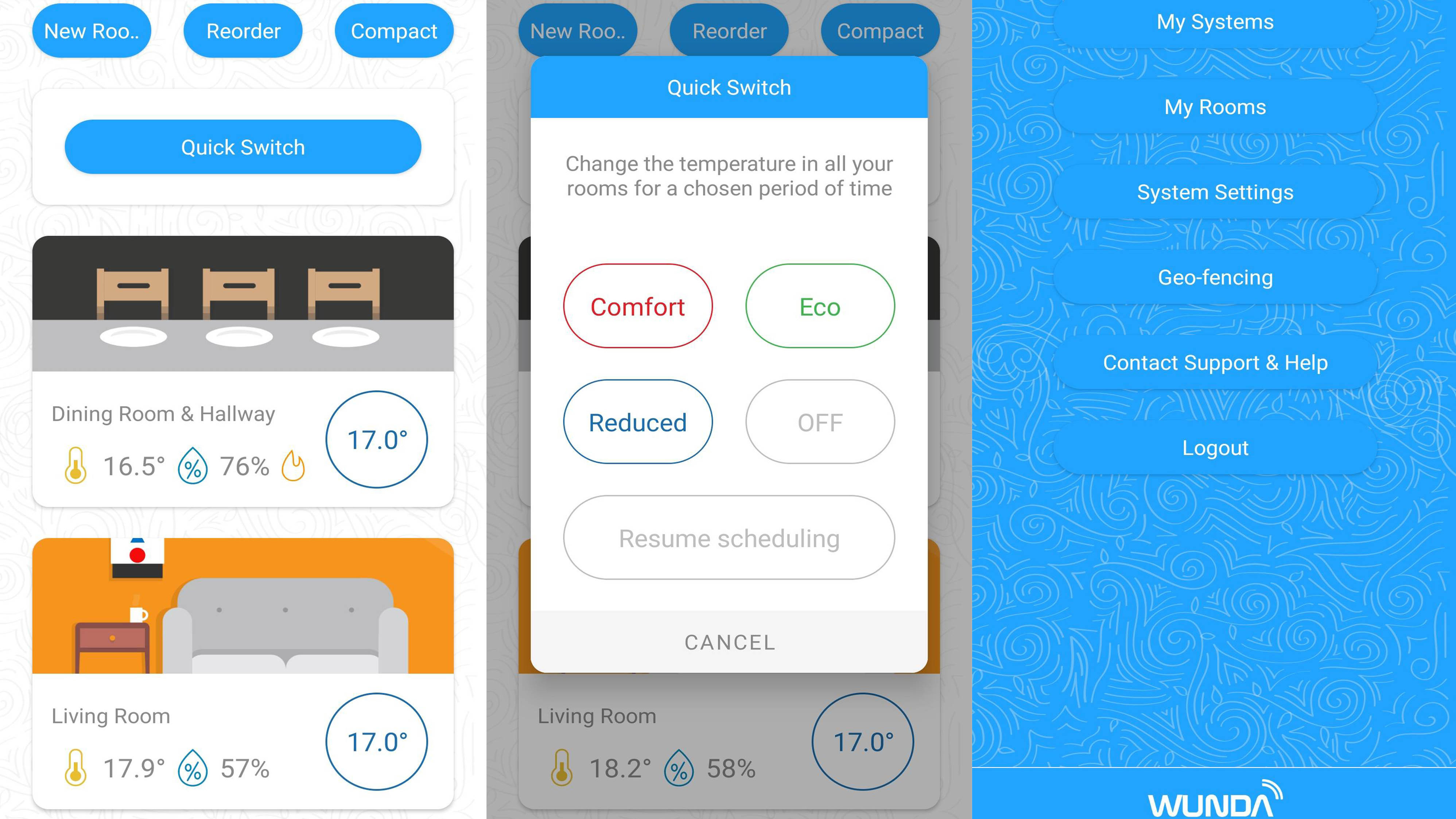
Battery life
- Batteries will last up to two years
- Standard AA and AAA batteries
- Easy to change batteries
The WundaSmart HubSwitch, which connects to your boiler, is mains powered, while the radiator heads and room thermostats each use two AA batteries, and screenless Thermostats use two AAA batteries.
E Ink displays are known for their long battery life because they only use energy to change what’s on the display. Wunda states the battery life on all devices should be a minimum of two years.
At the time of writing, I had tested the system for seven months and had only needed to replace the batteries in one of the screenless thermostats. Everything else was going strong. Each device opens slightly differently but you soon get the knack and swapping batteries is straightforward.
Should I buy the Wunda WundaSmart?
Buy it if...
You want zonal control
WundaSmart is a great way to bring zonal control to your existing heating system without starting from scratch again. With extra radiator heads costing £55.95 each, while room thermostats are priced at £49.95, it’s also more affordable than some rival systems.
You want precise temperatures
The combination of radiator heads and room thermostats means WundaSmart is more precise than other smart thermostats when it comes to heating the room to the temperature you want.
You’re schedule changes by the day
If you don’t keep a set schedule most days, the geofence feature which uses your location to switch the heating on and off will prove extremely handy in ensuring your home is warm and cosy when you need it to be, without wasting energy.
Don't buy it if...
You’re on a tight budget
Smart Thermostats that don’t offer zonal control are more affordable, so it’s one to avoid if you’re trying to keep the cost down.
You want a stylish design
WundaSmart has a similar all-white plastic design to Drayton Wiser, and while this may be functional, it certainly isn’t stylish. If you prefer gadgets that make a design statement, this isn’t the smart thermostat for you.
You want detailed insights about your energy
Some smart thermostats on the market can offer up detailed information about your energy usage - for example how the weather has affect the temperature you've chosen in your home, and exactly how much energy you’ve used. Unfortunately WundaSmart isn’t one of them, so if this is a priority this isn’t the smart thermostat for you.
First reviewed: January 2022

Caramel Quin is a nerd who tests consumer technology for newspapers, magazines, and online. She edited The Gadget Show Big Book of Cool Stuff. Caramel prides herself on real-world testing and translating geek speak into plain English. Her pet hates are jargon, pointless products, and over-complicated instruction manuals. Caramel has been testing gadgets for more than 25 years and has even won awards for it. Her home is packed with smart tech… and oh so many cardboard boxes. Caramel’s children, dog, cats, and rescue hens all help her destroy test home electricals.
